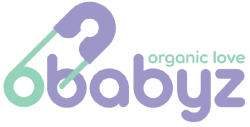Introduction:
We often compare our babies and kids to others without understanding that each child is different and have their own progress pace. Yes, there are general timelines that should be met, otherwise it may indicate a problem; but before panicking, jumping to conclusions and making erratic decisions, we should research, track and monitor them and consult a doctor, then take action, accordingly.
When do babies start talking?
As a mom, you’re always worrying when your baby will start walking, talking, and whether his first words are going to be mom or dad. What you may not realize is that you can totally impact that process with the way you communicate with your baby soon after birth.
Here’s a simple timeline of babies’ speech development from 1 to 18 months old:
-
Babies recognize their mother’s voice and language shortly after birth.
-
At 1 month old they are able to vocalize through vague sounds, not yet forming any words.
-
At 3 months old, their vague vocalization becomes more emotive with no clear speech yet.
-
At 6 months, they are able to make mere vowel sounds, trying to communicate and imitate the sounds and words their parents speak.
-
At 12 months, babies often start to babble in conversation style and can have vague speech of simple words like “Mama” or “Dada”.
-
From 12 to 18 months, they may speak a few recognizable words, use them in logical context as well as pointing at something and pronouncing it vaguely.
How to teach your baby to talk?
Your baby’s speech progress can immensely depend on you and how you interact with them. Research says that there are activities that can support your baby’s speech development, if incorporated in your baby’s daily routine, in the early years. Here are some examples:
-
Have conversations with your baby: use clear simple language in high and soft tones to converse with your baby.
-
Teach them individual words: name familiar, everyday-objects with visual assist so they can start matching them together.
-
Read to them: reading to babies from a young age through children’s books with big, colorful pictures helps them recognize familiar words and understand them.
-
Sing to them: this helps their listening, attention and understanding. Your tone of voice, signage, and visual aid will help them associate one and one together.

When to see a speech therapist?
Speech and Language Therapists assess all areas of a child’s listening, understanding, speech, and communications & interactions with others. Some children may face some difficulties with these areas more than usual that may require professional help.
But when do you know if your baby actually needs help or if you’re just being a paranoid mama?
If your baby experiences the following signs, they may need to visit a speech therapist:
-
They’re no babbling by 6 months old
-
They’re not making any eye contact at 12 months old
-
They’re not making sounds or using simple body language by 12 months old
-
They’re having a hard time comprehending simple commands by 18 months old
How to use technology to improve your baby’s speech?
As per popular belief, technology is not the best activity for a baby or a child to consume. However, with moderation, and for the right purpose, it can actually be very constructive and valuable. For example, an iPad can be used for learning and speech therapy purposes. There are many applications that focus on visual, audio and speech activities. They can enhance their language vocabulary, aid in comprehending voice tones and improve speech manners if they are facing difficulties. Tools like these are actually employed by speech therapists to engage the kids and efficiently tackle the problem.

Conclusion:
If you are a new mom, a worrying mom, or just a mom, you are doing great. It takes a lot of practicing and experiencing different situations to get the hang of motherhood. You learn as you go and we are rooting for you at OBabyz.
Make sure you’re always well-informed and updated on everything baby-related through our blogs: https://www.obabyz.com/blogs/insights

